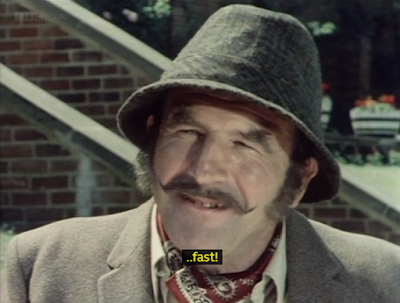The warmest March 30th for over 50 years - 72F / 22C, but our morning is spent in clearing a backlog of urgent tasks to do with our U3A groups. It's a good thing I'm retired and haven't got a job to go to, which gives me a bit more time, to put it mildly! Also we haven't used the car for 2 weeks apart from a couple of ultra-short journeys to take Lois to the dentist, so we have to take it out for "a spin". Nevertheless, that's still a pretty nice life isn't it - we mustn't grumble.
Lynda's U3A Middle English group is holding its monthly meeting on zoom on Friday afternoon, so I have the text to print out so I can study it on and off before then, with any luck. We're going to be looking at a medieval mystery play, "Thomas of India" - this "Thomas" is the apostle in the gospels, known popularly as "Doubting Thomas", who refused to believe that Jesus had been resurrected, until he could meet Jesus for himself and both see, and feel, the wounds Jesus had received on the cross.
Many Christians in India believed that this Thomas also travelled to India and started the Christian faith in that country, although it seems a bit unlikely, to put it mildly! There's no historical evidence for it, and the earliest account of Christianity in India - by Cosmos the Alexandrian who visited Malabar in 520-525 AD - doesn't mention Thomas, which would seem a bit odd. But I'm going to let that one slide - it's the medieval English play that we're interested in! [Speak for yourself! - Ed]
Travelling was super-dangerous in those days, and I wouldn't have rated Thomas's chances of making it to India unscathed very highly, that's for sure. Look at the case of poor Brictric of Waddesdon, whose story went viral recently thanks to a report in Onion News, the influential American news website.
PERDITION—While admitting that the explanation was not
technically true, 943-year-old spirit Brictric of Waddesdon confirmed Tuesday
that he had found it simpler to just tell fellow denizens of the afterlife that
he died in the Crusades despite actually catching typhus en route to the Siege
of Antioch.
“Sure, it isn’t the whole truth, per se, but telling everyone I meet that I passed away from typhus during our march through Anatolia will just raise more questions than it answers,” said the incorporeal spirit, adding that his “white lie” was purely for the sake of convenience and that it did nothing to take away from the brave sacrifices of Crusaders who had actually died in the attempted conquest of the Holy Lands for all faithful Christians.
“Let’s be clear, though. I was absolutely going to fight and die for the king’s honour. Unfortunately, typhus was just how most people died in those days.” At press time, Brictric was rapidly backpedalling after an enthusiastic Flemish cavalryman who had been immolated in a torrent of hot oil at Antioch asked which brigade he served in.
I like Brictric's style, no doubt about that! Is it strictly kindness always to tell the exact scientific truth if it's going to take up too much of the listener's time, and lead to a tiresome debate and possibly postpone something more important? Surely not - what madness!!!!
I glance at the first page of the text of the medieval play to see if it's going to be do-able before Friday. It doesn't look too bad - I see an early use of the word "couth", which is interesting [If you say so! - Ed]. The now obsolete word "couth" used to mean "well-known" or "famous", or "familiar with good manners". We only say "uncouth" now, just like we don't say "scathed", only "unscathed". This looks promising as a text to study I think - I suspect I'm going to have fun with this play! [I don't want to hear another word about it! - Ed]. Isn't language fascinating! [No! - Ed]
Extract from the play - "couth" is here spelt "cowth", a variant spelling from the time19:30 Lois disappears into the dining-room to take part in her sect's Tuesday Bible Reading Group's session on google meet. I settle down on the couch to watch a bit of TV, the latest programme in the "Stand Up Sketch Show" series, where stand-up comedy routines are interspersed with sketches were the comedian and other actors act out the scene and mouth the words.
Tonight's show celebrates how easy women find it to make new friends, bonding almost instantly just with any strange fellow female they happen to bump into on the street..
21:00 Lois emerges from her google meet session and we watch a bit more TV, another episode from the 1970's sitcom, "The Fall and Rise of Reginald Perrin", which is all about a bored, middle-aged middle manager suffering from a mid-life crisis.


































No comments:
Post a Comment